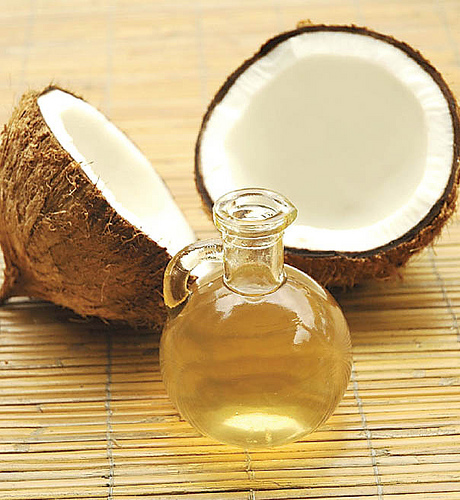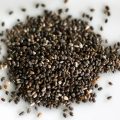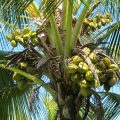The talk that coconut oil is bad for the health is pure myth.
Scientists from Michigan State University found that coconut oil has many unique nutritional and health benefits. It enhances our immune systems making us more resistant to diseases such as coronary heart disease and cancer.

Nearly half of the fatty acid in natural coconut oil is lauric acid, which converts to fatty acid monolaurin in the body. Monolaurin destroys lipid-coated viruses such as herpes, cytomegalovirus, influenza, and various pathogenic bacteria and protozoa. It is a main component of human breast milk and helps protect children from illness during infancy.
The misconception that coconut oil increases one’s cholesterol levels and results to heart disease was based on an overblown hypothesis that all saturated fats are bad for the body. Coconut oil has a high level of saturated fat. However, scientists soon discovered that not all saturated fats are alike.
The fatty acids in coconut oil are medium chain triglycerides that do not raise serum cholesterol or contribute to heart disease like the long chain triglycerides found in seed oils. Also, most research done on coconut oil was not done on natural coconut oil but on hydrogenated coconut oil, which has been altered from its original form.
Hydrogenated coconut oil contains trans fatty acids (TFAs). TFAs are bad for the body. They lower the “good” HDL cholesterol and raise the “bad” LDL cholesterol, raise total serum cholesterol levels; increase blood insulin levels, increase risk for diabetes; affect immune response by lowering efficiency of B cell response and increasing proliferation of T cells; interfere with utilization of essential omega-3 fatty acids; and escalate adverse effects of essential fatty acid deficiency.
Processed foods such as margarine, potato chips and baked goods usually contain hydrogenated or partially hydrogenated oil.
In a related study, scientists from the Institute of Biological Sciences, Institute of Plant Breeding and Institute of Chemistry of the University of the Philippines at Los Baños (UPLB) recently cloned and characterized the gene in coconut responsible for producing the lauric acids in coconut oil.
The gene is called the acyl-ACP thioesterase gene in coconut. Scientists are determined that identifying the gene will set the groundwork for identifying other coconut genes and is a step nearer to their ultimate goal of creating a transgenic coconut which will have more lauric acids.
—————-
Source:
Cloning and Partial Characterization of the ACYL-ACP Thioesterase Gene in Coconut (Coco nucifera L) by Marni Cueno, Rita Laude, Antonio Laurena, Ma.Jamela Revilleza and Evelyn Mae Mendoza of the Institute of Biological Sciences (IBS), Institute of Plant Breeding and Institute of Chemistry of the University of the Philippines at Los Baños (UPLB); Health and Nutritional Benefits from Coconut Oil: An Important Functional Food for the 21st Century by Dr. Mary Enig of Michigan State University
By: by Junelyn S. de la Rosa, BAR Chronicle, February 2003 Issue (Vol. 4 No. 3)



